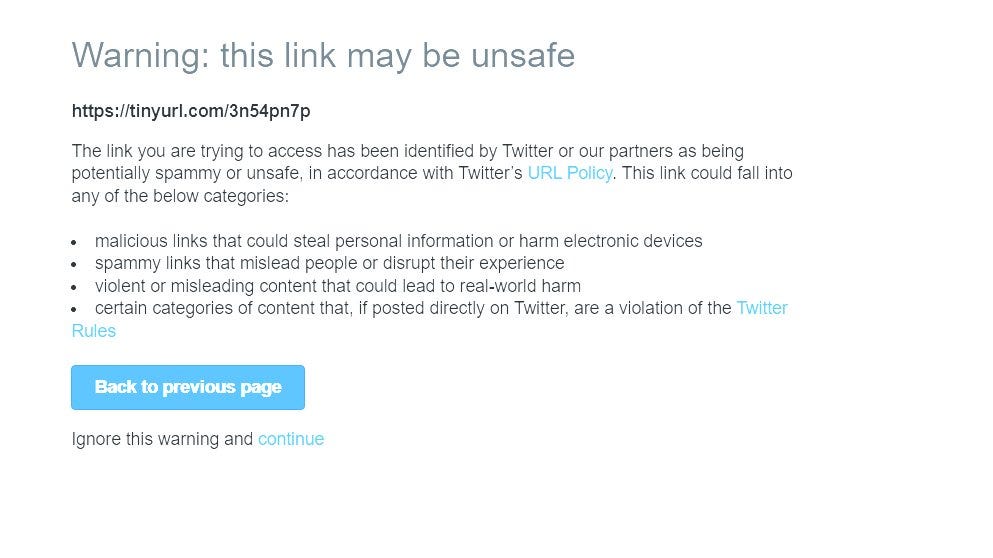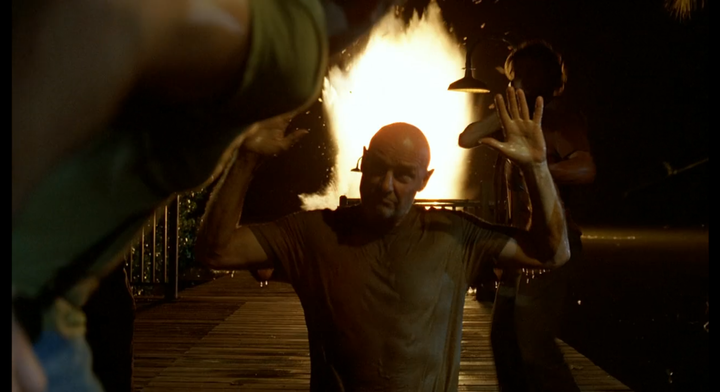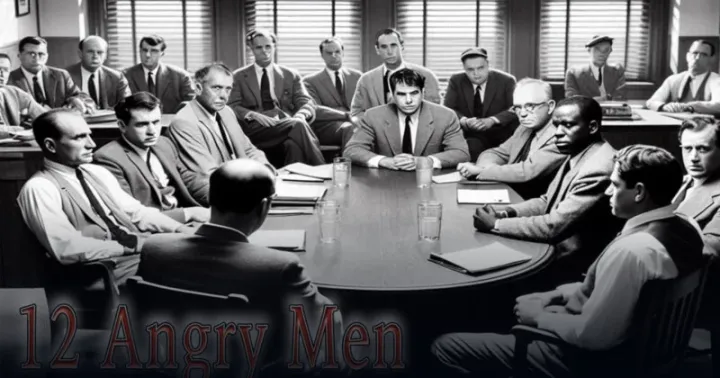The World's Smartest Man Doesn't Want You to Read This on Twitter
Let this sink in.

So the world’s smartest man is out there, doing the sort of stuff that the world’s smartest man does.
Everybody knows he’s the world’s smartest man, because he’s the world’s richest man—though maybe not anymore, but let’s table that quibble, because honestly these things are difficult to track, and whatever his ranking, he’s possessed of a wealth inherited from the wreckage of an apartheid state that he’s now grown into a boodle as massive and indestructible as a continent1 and that means he’s the smartest man in the world. If you were the world’s smartest man, after all, you’d have turned your apartheid inheritance into the world’s largest fortune, and since you haven’t done that, you aren’t the world’s smartest man. Why, you might not even be a man, the definition of which is something the world’s smartest man seems to have some opinions about.
Where was I? Oh yeah, the world’s smartest man. He’s doing the sorts of things the world’s smartest man does.
He’s sending us to Mars by 2022, for example. Well, that was the timeline in 2017. I think it’s something like 2028 now, which is about how far in the future 2022 was in 2017, I notice. It’s a specific amount of time: soon enough to get excited that the smartest man in the world is sending us to Mars, but not so soon that we pack our bags. I don’t know if he’s defined “us,” by the way, but one thing is clear: the world’s smartest man is sending some value of “us” to Mars, and you shouldn’t doubt it. It’s just the sort of thing that you can easily do when you’re the world’s smartest man.
Oh! and he’s saving the world by moving it from fossil fuels to electric—electric cars, that is. Electric luxury cars, that is. Cars priced like luxury cars, anyway. The world’s smartest man bought a pretty slick electric car company from people less smart than him, who created the actual technology and whatnot. Luxury cars are an attainable thing for everyone in the world who needs transportation, that’s for sure, and so it will definitely scale globally in ways that for example mass public transportation will not—which is the sort of thing you know if you are the world’s smartest man.
And the world’s smartest man seems particularly adept at saying things that will make the market excited in one way or another, either in a positive way or a negative way, and he seems fairly adept also at, before he says these sorts of things, doing things with the stocks of his publicly traded company that will benefit him, even if it doesn’t benefit for example his company or his shareholders or anybody else. It’s the sort of thing you know how to do when you are the very smartest.
Or for example he is going to build a hyperloop that will revolutionize transportation. It’s only going to cost 10 billion of our Earth dollars to build and it’s going to be like a "cross between a Concorde and a railgun and an air hockey table" according to him. It’s going to use magnetic levitation and vacuum-sealed tubes to transport people at 700 mph to their destinations. It also never worked and was never even built or even funded, but it may have slowed or stymied support for California’s planned high speed rail build. High speed rail is, unlike the hyperloop, something that can be built and would transport people at high speeds. You might even think that the world’s smartest man only proposed the hyperloop specifically to prevent high speed rail from being built, but you may only think that because you are not the world’s smartest man who happens to own a car company, and also maybe because he admitted to his biographer that this was exactly what he hoped would happen to the high speed rail plan, in the context of his proposed hyperloop.
So you might think that the reason for these grandiose pronouncements is to disrupt progress, rather than to enable them.
Or you might join his defenders, who say he did it because he found the high speed rail proposal, which was possible and practical and would have been attempted, unsatisfactory, particularly in comparison to his hyperloop idea, which was not possible or practical, and which he was not attempting. But then again, though I am not the world’s smartest man, I can’t help but notice something the public record makes clear, which is that saying frequently untrue bullshit in order to sabotage value and benefit himself is something the world’s smartest man seems particularly adept at doing; that, and keeping promised developments exactly the same amount of time in the future no matter how far into the future we seem to push.
It almost makes you think that the way you build the world’s biggest fortune is not by creating anything, but by buying it, then identifying the value of it, then figuring out where the pieces would fall if you destroyed it, and then being in that place, and then destroying it.
It almost makes you think that the way you build the world’s biggest fortune is by constantly encountering problems that allow you to build fortunes via sabotage, and offering grandiose solutions to those problems specifically so that other people don’t pursue more practical solutions to those problems—and then never delivering on the grand solutions. I’m nowhere near the world’s smartest man, but it strikes me that you don’t have to try to save Earth if we’re all going to live on Mars in the perpetually not-too-distant future.
It almost makes you think that when people who are enriched by the existing status quo engage in what they call “disruption,” what they are disrupting is any progress away from the status quo.
Oh. And one other rather minor thing the world’s smartest man is doing …
He has gone and bought himself a social networking platform. It’s called Twitter and maybe you’ve heard about it. I sure have.
In the last 15 years or so Twitter has sort of become the de-facto gathering place for interaction on the internet. It’s messy and it was never very profitable, but it had a lot of value2, and, while a lot of very smart and dedicated people worked at Twitter to harness that value and enhance it and foster the environment from which that value sprang, that value was created not by the owners or the developers, but by the fact that interesting and smart and funny people interacted there, and by the interesting or provocative or educational or funny things they said.
Now, the world’s smartest man had already been on Twitter before he bought it, and it soon became evident that being the world’s smartest man meant you came off in a certain way that doesn’t seem particularly smart, especially to people who aren’t the world’s smartest man.
For example, being the world’s smartest man meant finding things funny that were sort of lowest-common denominator stuff, or played-out jokes, or memes from months or years ago. And it also meant finding memes and jokes that other people had created and passing them off as his own. And it also seemed to mean trying to advise the expert rescue team during the Tham Luong cave rescue with grandiose plans, and then, after being told by the leader of that team that his suggestions were both unwelcome and as unpractical as most of his plans, lashing out and calling their leader a “pedo guy” and a “child rapist.”
And then after he bought Twitter, we have all seen what it means. It means insisting on fostering a place for unrestricted free speech while banning reporters who are critical of him, and bringing back the sorts of abusive actors who had been banned for using their hate speech to threaten and harass other people off the platform. It means insisting that the platform should be unbiased while currying favor from far-right extremists and propogandists and even doing their bidding in real time. It means creating a subscription model that demolishes the existing verification structure and claiming that doing so will create a level playing field, even while describing the new playing field as a deeply divided hierarchy based not on value of one’s thoughts, but on one’s willingness to pay. It means firing most of the staff and pulling apart various load-bearing aspects of the platform’s framework and replacing it with a post-it note. It means doing a lot of things that destroy the value of the platform, in other words, which make more and more of the people who gather on Twitter and create its value wonder what the point of continuing to write on Twitter is.
And it means finding accurate criticism of himself and his choices worthy of retribution.
And it means finding very very very stupid things very very very funny.

It all makes me think, as you might expect, of Beavis and Butthead.
You know: the funny dudes. The smart one and the less smart one. Butthead’s the smart one. You can tell he is by the way Beavis defers to him. Butthead mostly likes to destroy things. He doesn’t seem to know how to turn willful destruction into personal profit, so I guess this means that he isn’t the world’s smartest man, but Beavis sure seems to think he is. Beavis is the less smart one. He thinks anything Butthead says is great. He laughs at all of Butthead’s jokes, which are mostly repeated catchphrases and lowest common denominator stuff, and he even laughs at some things that Butthead says that are not jokes, at which point Butthead has to tell him to shut up. Crucially Butthead is the smart one because Beavis finds him smart. To Beavis, Butthead is the smartest and funniest man in the world. Everybody else thinks Butthead is a tiresome ignorant socially maladapted fool, and they think this because that is what Butthead is.
It strikes me that every Butthead needs a Beavis. Without Beavis, Butthead would be left with nothing but the opinion of everybody else. And it strikes me that Twitter is full of Beavises, all ready to tell the world’s smartest man that everything he does is epic and hilarious, even though he can’t actually think of anything smart to do or anything funny to say. So that’s interesting.
Even more interesting is this: the world’s smartest man, who seems to always crave an army of Beavises, seems to have found himself a Butthead to whom he can Beavis. The Butthead for the world’s smartest man is a far-right reactionary extremist who goes by the name “Cat Turd 2.” So that’s … interesting? I don’t know. But the world’s smartest man seems to have discovered the customer whose opinion matters most to him—his Butthead—and it is the second turd in the litterbox. If it’s not interesting, it’s at least worth noting.
Anyway, Twitter. The world’s wealthiest and therefore smartest man seems to be destroying it, maybe because he’s making mistakes, or maybe because (as we know) he is the sort of person who is very adept at personally profiting from destruction of something valuable, and particularly adept at making grandiose statements designed to achieve the exact opposite of what they claim3. Which brings me to the reason I suppose I am thinking about the world’s richest man this morning.
There’s this platform called Substack, and you know this because you’re either reading this on Substack or in an email that it facilitated.
Substack is a newsletter platform, mainly, which means that it has become the sort of thing we used to call “blogs” before Twitter disrupted blogs.
Twitter had for a while been one of my favorite ways of writing things, but recently, and especially as Twitter has declined, the longer form that sites such as Substack facilitate has become my favorite way of writing. In fact, the main reason I still use Twitter is because it’s been an effective way of getting my writing in front of an audience. So it’s where people who want to read my writing ought to go, is a reasonable conclusion to draw.
Substack recently introduced this thing called Notes, which is sort of like Twitter. I’ve tried it. It seems fine. Maybe I’ll use it; we’ll see.
The world’s smartest man does not like it, and what he’s done in response is this: he’s made it impossible to put links to Substack on Twitter.
You might remember that being able to draw people to what I write on Substack was the main reason I now use Twitter. I don’t think I’m alone, either.
You can work around this by creating a shortened URL or establishing a domain, but the world’s smartest man appears to be committed to fighting the menace of interaction and interconnectivity and expression on his platform, whose value derives from interaction and interconnectivity and which he said he purchased to safeguard expression.

What happens now is that the link to Substack, no matter how shortened, will tell you that Twitter deems it a dangerous and malicious link. This probably makes people less likely to click through, but it will also, over time, make people less likely to trust Twitter’s proclamations that a link is dangerous, which will mean that people who want to promote actually dangerous content will find their job a lot easier on Twitter, which means that yet another piece of Twitter’s value is going to break off and fall apart, and I presume that the world’s richest man has figured out where to stand in order to catch that value, because he is the world’s smartest man.
I don’t know what to make of this. It’s distressing when you’re the value that’s being destroyed for a saboteur’s personal gain, that’s for sure.
It makes me think that until it’s reversed, I’m probably not going to write much of anything on Twitter.
I do think it’s probably going to get reversed, not so much because it’s bad business, but because it appears to be angering Twitter’s Beavis Army, upon whom the world’s smartest man clearly relies for emotional support.
But there will be more shenanigans after this. And it all makes me wonder, when I’m on Twitter, what the point even is anymore.
With every one of these shenanigans, it makes me less likely to use the platform whose value he’s dismantling.
It makes me more and more interested in moving to alternatives, and encouraging other people to do so—which I know anybody who’s subscribed already has, and which I hope anybody reading this some other way will, so here’s a good place to drop a link for that.
Part of me suspects that the reason he’s doing this is purposeful, because he’s figured out how to personally gain from the destruction, because that’s what he appears to do.
And part of me suspects that the reason he’s doing it is because he’s an angry and reactionary man who lashes out at perceived threats and slights, because that is also what he appears to do.
But I suppose there is an alternative.
The alternative is that he isn’t the world’s smartest man after all.
He’s just another Butthead, a socially maladapted dork who likes destroying things, because destroying things is easy, and fun, and amusing to a man who can’t think of anything interesting to do or say—and because it makes his Beavis Army laugh, and call him epic, hilarious, the world’s smartest man.
He’s just another Beavis, laughing at the dumbest things, and repeating them as if they’re his own, keeping the company of the only person who tolerates him, and then only because he’s the only person still laughing.
Or maybe … maybe … there’s yet another alternative.
Maybe most “disruptions” that people already enriched by the status quo engage in are meant to disrupt progress, not create it.
And maybe being able to profit from willful destruction doesn’t make you smart, it just makes you destructively rich.
A.R. Moxon is the author of The Revisionaries, which is available in most of the usual places, and some of the unusual places, and is co-writer of Sugar Maple, a musical fiction podcast from Osiris Media which goes in your ears. He’ll sing you a song, he’s the piano man.
Yes, technically continents are destructible, and in fact plate tectonics mean that the destruction of continents is actually, over time, inevitable. But come on, I’m trying to make a point here, and maybe I just did. ↩
I could probably write for a while on how this demonstrates that value and profit are not inextricable, and in fact are at times oppositional, but that would be very disruptive. ↩
And his second largest investor in Twitter is a regime that for example recently dismembered a journalist with a bone saw. Wonder why I thought of that. ↩




Comments ()